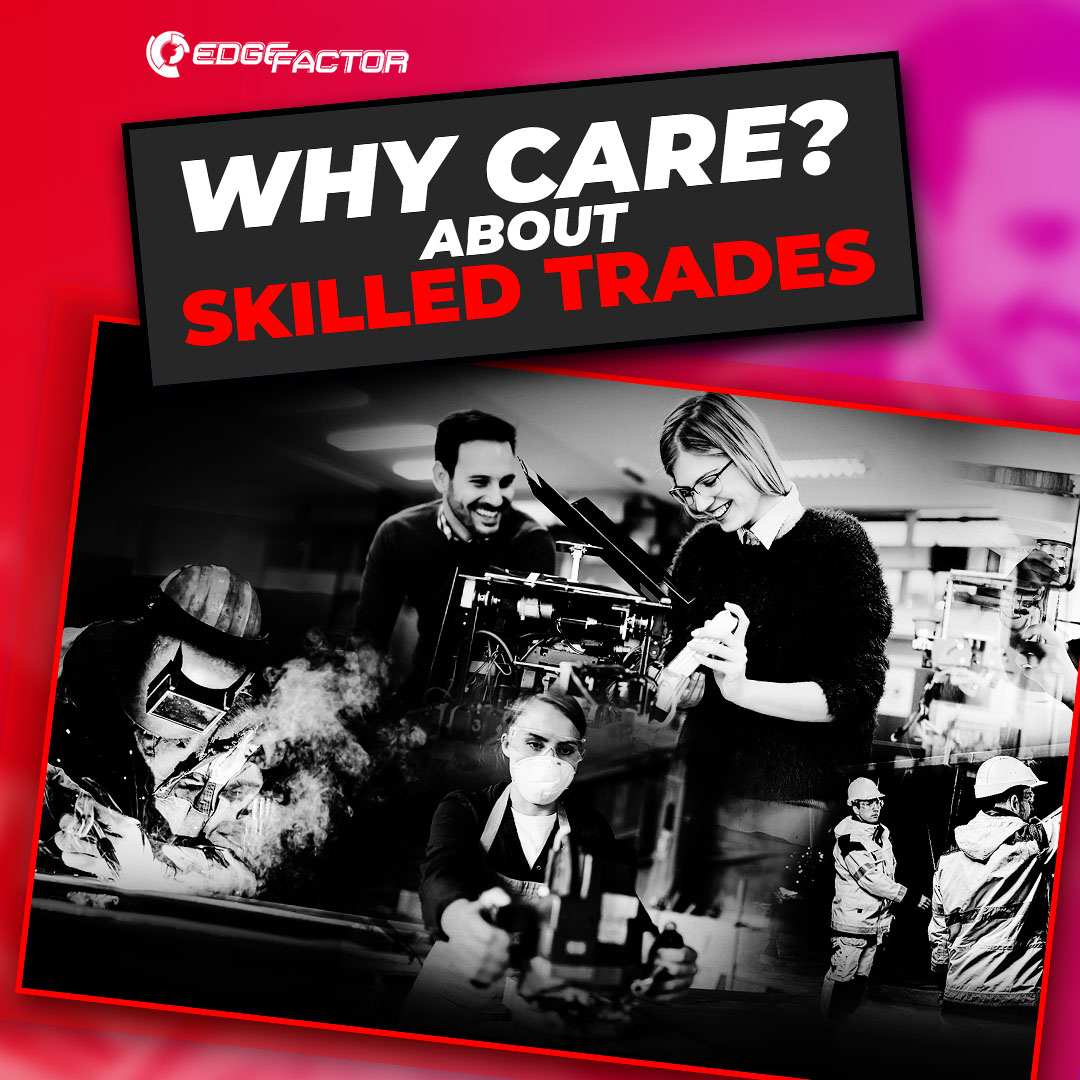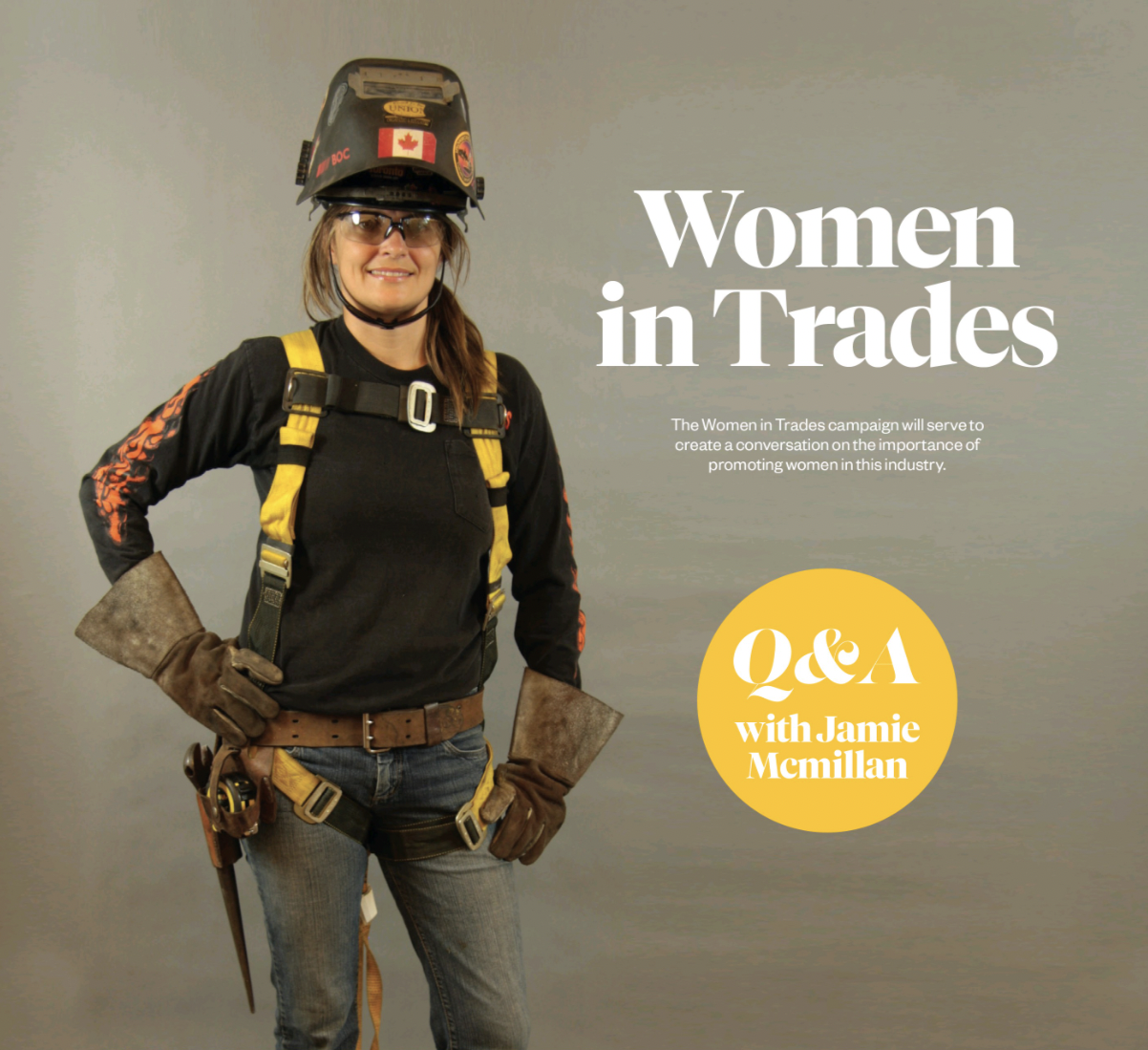
Imagine a world without skilled trades. No electricians, carpenters, plumbers, metal workers, painters, mechanics, and metal workers. No one who can build, repair or do anything that requires programming, engineering or hands on work.
Why care about skilled trades? Everything we rely on to live, work and play involves tradespeople. It’s not an exaggeration to state that tradespeople are the backbone of our economy and the most essential workers we have.
Why are there so many myths related to skilled trades?
Years ago, skilled trades careers were common and the work was physically demanding. Parents wanted a better life for their children so they encouraged them to go to college or university. Along came this perception that universities were part of the 'higher society' and the 'big money' folks established and sold them as a 'ticket to prosperity' thing. Higher education became equal to higher standard of living, higher earning and more respect.
Well, things certainly have changed. Today we have a shortage of skilled tradespeople. As baby boomers age and retire, there aren’t enough young people starting careers in the trades to fill their positions. We have more college graduates and not enough tradespeople, but the stigma persists.
So let’s dispel some of the myths about skilled trades careers and help you understand why you should care.
Myths about Skilled Trades
Myth #1: The trades are for people who can’t get into college or university.
This may have been the case years ago, when baby boomers and immigrants could not afford to pay for higher education. However, it’s not a measure of intelligence.
Kinesthetic learners or reading and writing learners, all have value. While one student does well in a structured classroom setting, another student learns in an active environment where they can watch, learn and do. They need hands-on experience to make connections while others make connections by reading and writing. This doesn’t mean one is more intelligent than the other. We all have different ways of learning, hands on doesn’t mean minds off.
“There is a lot of knowledge, competencies, critical thinking, and creativity required for persons going into the trades.” Cebert Adamson, Vice President of International Alumni, Mohawk College
Myth #2: Tradespeople don’t make enough money.
Skilled tradespeople earn significant money. Often they have very little debt because the journey to a well paying job is likely through a college certification or diploma or an apprenticeship where they earn while they learn. Many entry-level jobs in the skilled trades pay upwards of $20 an hour, and the wages go up from there. The average salary for skilled trades workers is $75,000 to $100, 000 a year.
When we wrote about “Why Get Involved in Manufacturing Day Events” we shared the story of Daryll Spector who launched a rewarding career as a Professional Engineer. He shared how satisfying it is to know that his employees can build a life off their careers in manufacturing.
Myth #3: Jobs in the trades are difficult to find.
We asked industry leaders to name all the careers in skilled trades they could think of in this episode “Why Care” and there are too many to list. The diversity of trades spreads across various industries from construction, electricians, to metal workers, programmers, engineers and more.
The possibilities are endless. Skilled trades are evolving with technological advances and the opportunities for advancement and career development are plentiful in skilled trades careers.
Edge Factor equips educators and inspires students and job seekers with the largest known library of career multimedia. Our platform offers story-driven, age-appropriate content, interactive activities, and digital badges designed for use in classrooms, events, homes, and on the go. With 5000+ tools in 21 languages, we empower millions of K-12+ students and educators across the US and Canada to explore, prepare, and connect on their career journey.
Be inspired by Jonathan’s story. Jonathan Sinke, Owner and Cabinet Maker at J. Sinke Wood Interiors had an interest in construction from an early age. He took his love of construction and woodworking and discovered the skill and craftsmanship behind custom cabinetmaking. Cabinetmaking is just one of the many trades within the construction industry.

Most skilled trades are necessary for daily lives. We will always need tradespeople in order to live, which provides a level of job security some other professions cannot give.
“There are so many different opportunities in the trades anybody can be successful in them.” Meghan West
Myth #4: The trades are only for men.
This misnomer has been damaging to skilled trades careers. Women make up less than 10 percent of skilled trade jobs. Many trades are looking at women to fill in the gaps in the workforce shortage.
Every year Edge Factor offers a free Skilled Trades Toolkit where we celebrate and showcase women who have launched successful careers in the trades.
As a woman in a male-dominated industry, Shelley Davies worked hard to break stereotypes and build a successful career as a Metal Fabricator at Berminghammer. Shelly loved building with legos as a kid, but instead of pursuing a skilled trades career in high school she went to college and university. She worked on cruise ships and as a wedding planner. When she was unsatisfied and looking for a change, she only found satisfaction when she discovered a way to make a living working with her hands.
Now Shelley builds parts that go into the world. She reads blueprints, uses powerful tools and technology to fuse metal components that are used to build tunnels, bridges and infrastructure.
So Why Should You Care about the Skilled Trades?
Everything we build needs a strong foundation. Our economy, our communities, our families and generations to come will continue to rely on skilled trades. A tradesperson with a certificate of qualification can work anywhere in the world, making their knowledge and skills invaluable.
“Skilled trades are the foundation of our existence.” Meghan West, President & CEO of Mastercam
We all have a role to play in building the future workforce. Discover how Edge Factor is equipping parents, educators and workforce leaders to inspire students and job-seekers to explore rewarding careers in the trades.
During the months of March, and April, Edge Factor is providing a FREE Skilled Trades Toolkit to equip educators, industry, and workforce leaders with high impact tools to showcase diverse people and careers in the skilled trades. Use this toolkit to align with International Women's Day, Diversity Month, Global Recycling Day, Developmental Disabilities Month, Autism Awareness Day, or Earth Day! Show students and families how skilled trades professionals are turning challenges into success, and how sustainability and AI are impacting the future of skilled trades.
Learn More About Edge Factor
If you are interested in learning more about what an Edge Factor membership can unlock, create your free account or book a demo.
Questions? Feedback? Contact us.
Email: info@edgefactor.com or message us on the Live Chat. We’d love to hear from you.



.jpg)
.png)
.png)
.jpg)